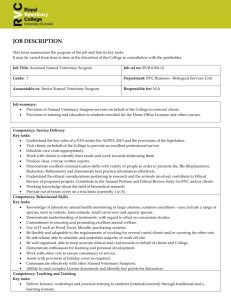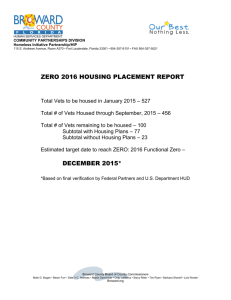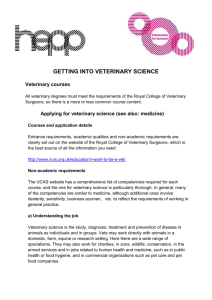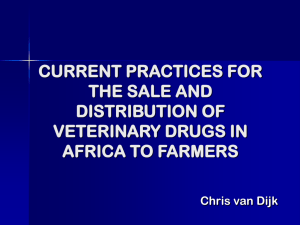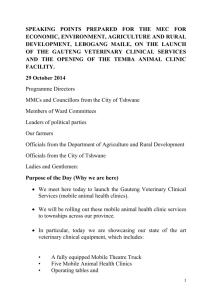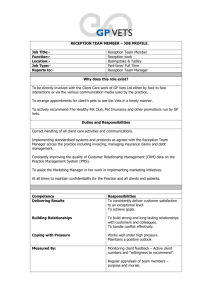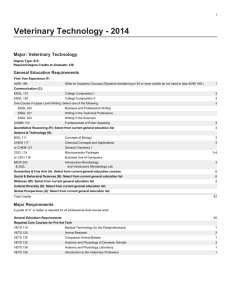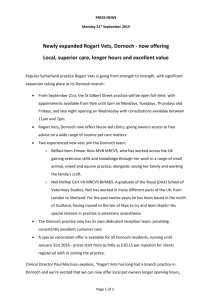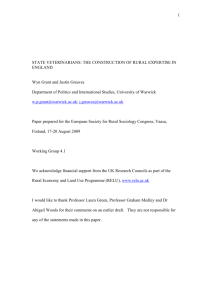Is prevention really better than cure for livestock diseases?
advertisement
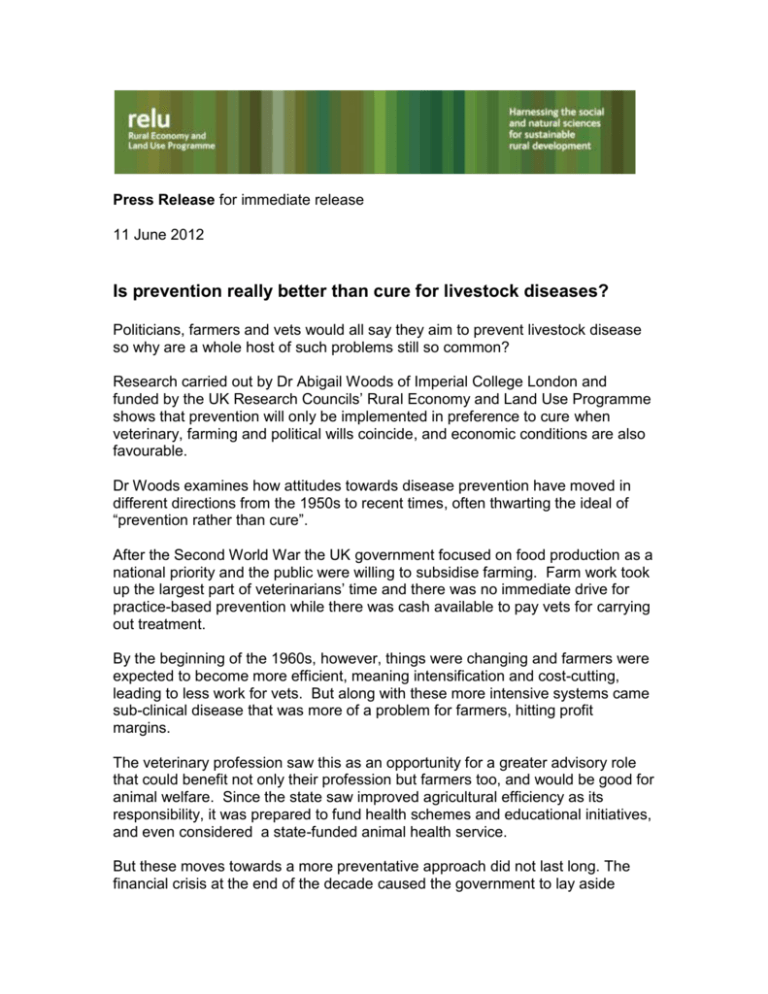
Press Release for immediate release 11 June 2012 Is prevention really better than cure for livestock diseases? Politicians, farmers and vets would all say they aim to prevent livestock disease so why are a whole host of such problems still so common? Research carried out by Dr Abigail Woods of Imperial College London and funded by the UK Research Councils’ Rural Economy and Land Use Programme shows that prevention will only be implemented in preference to cure when veterinary, farming and political wills coincide, and economic conditions are also favourable. Dr Woods examines how attitudes towards disease prevention have moved in different directions from the 1950s to recent times, often thwarting the ideal of “prevention rather than cure”. After the Second World War the UK government focused on food production as a national priority and the public were willing to subsidise farming. Farm work took up the largest part of veterinarians’ time and there was no immediate drive for practice-based prevention while there was cash available to pay vets for carrying out treatment. By the beginning of the 1960s, however, things were changing and farmers were expected to become more efficient, meaning intensification and cost-cutting, leading to less work for vets. But along with these more intensive systems came sub-clinical disease that was more of a problem for farmers, hitting profit margins. The veterinary profession saw this as an opportunity for a greater advisory role that could benefit not only their profession but farmers too, and would be good for animal welfare. Since the state saw improved agricultural efficiency as its responsibility, it was prepared to fund health schemes and educational initiatives, and even considered a state-funded animal health service. But these moves towards a more preventative approach did not last long. The financial crisis at the end of the decade caused the government to lay aside plans to bankroll vets to offer preventive advice. Meanwhile, Britain’s entry into the EEC eased the financial pressures on farmers. This made them more inclined to live with the effects of sub-clinical disease, or opt for drug treatments which seemed easier and quicker than the lengthy, difficult business of disease prevention. Vets, on the other hand, were not attuned to customer needs, failing to appreciate that for farmers it wasn’t the disease itself that was the problem but its impact on their profits. They too were seduced by easier ways of earning a living, and turned away from prevention as new drug treatments and small animal work came their way. The British Veterinary Association and Royal College of Veterinary Surgeons were keen to reduce the use of antibiotics and take a more preventive role but they seem to have been lone voices, even within the profession itself. Dr Woods explained: “Although everyone always acknowledges that prevention is better than cure, willingness to act on this principle depends on all the right factors being in place. We can see from my research that the 1960s was a period when, albeit briefly, this was indeed the case. “But this situation quickly fractured. The government wanted farmers to take financial responsibility, while they were unwilling to pay for advice which they did not see as having obvious or immediate value. They preferred to pay for cure rather than prevention, and most vets were only too happy to oblige “This pattern has useful lessons for policy makers today, not only for animal disease but in other situations. Attitudes among key players must be right for any policy to succeed and, as we see, those can depend on a range of factors.” Notes for editors: 1. The research is published in Social History of Medicine. and may also be accessed via early access page at http://shm.oxfordjournals.org/content/early/recent 2. Dr Abigail Woods is a researcher at the Centre for the History of Science, Technology and Medicine, Imperial College London. 3. The Rural Economy and Land Use Programme is an interdisciplinary collaboration between the Economic and Social Research Council (ESRC), the Biotechnology and Biological Sciences Research Council (BBSRC) and the Natural Environment Research Council (NERC), with additional funding provided by the Scottish Government and Defra. See www.relu.ac.uk for more information about the Relu programme. 4. For any further information contact anne.liddon@ncl.ac.uk , tel 0191 222 6903. ends

